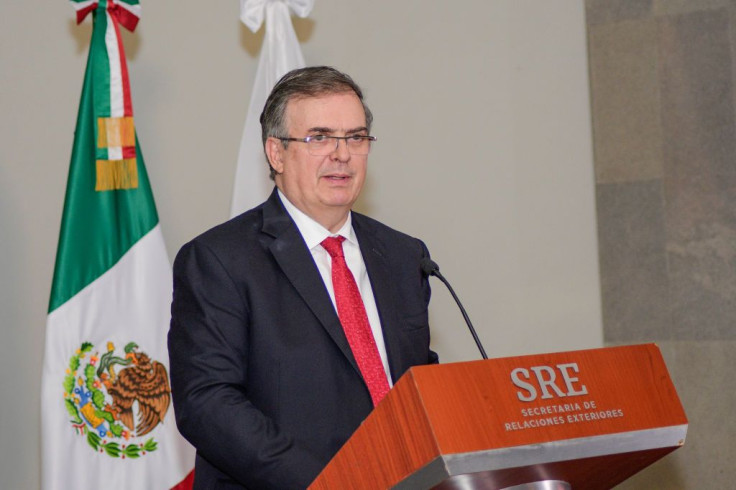
Mexico's Secretary of Economy, Marcelo Ebrard, said that Mexico will need "cold blood and intelligence" to negotiate with incoming U.S. President Donald Trump.
Although Trump has signaled possible heavy tariffs on Mexican imports, Ebrard, who will lead the 2026 review of the U.S.-Mexico-Canada Agreement (USMCA), believes the relationship with the new administration will be challenging but ultimately positive.
Specifically, Trump signaled the possibility of slapping a 25% tariff on Mexican imports if the country doesn't stop migrants and drugs from coming into the United States. Trump previously promised 200% tariffs on vehicles imported from Mexico. That came after promising 100% tariffs at one point on cars built in Mexico.
In addition to the tariffs on Mexico, the Republican leader has expressed his intention to reverse pro-electric vehicle policies and rescind regulations enforced by the Environmental Protection Agency and the Transportation Department on his first day in office. He also aims to reduce or eliminate tax breaks and other incentives for electric vehicles.
"I'm optimistic," Ebrard said, while cautioning that "nothing is easy", as reported by La Jornada. He spoke after participating last Thursday in a private meeting with Mexico's National Association of Supermarkets and Department Stores. Later in the day, after a meeting with Mexican President Claudia Sheinbaum, Ebrard reiterated that Mexico would respond to Trump's threats calmly and intelligently, adding that the Mexican administration has been preparing for this scenario for months.
U.S.-Mexican Trade
Ebrard's optimism is rooted in recent U.S. Census Bureau data, which underscores Mexico's strong trade position with the U.S. He highlighted that Mexico is currently the U.S.'s top trading partner by total exports and imports. Mexico has also become the U.S.'s leading supplier, surpassing other major economies, including China, for the first time in over 20 years.
"This year, Mexican exports to the U.S. grew by 6.5%, which is very significant. Many countries would wish for that growth rate," Ebrard pointed out. He also highlighted a 4.7% increase in imports from the U.S., indicating "a very robust economy" and a mutually beneficial relationship. According to Ebrard, this trade strength forms the foundation for Mexico's upcoming negotiations with the Trump administration, grounded in a treaty that has yielded positive outcomes for both nations.
Addressing Trump's tariff threats, Ebrard argued that such a move would backfire on the U.S. "We import many goods from the United States. We integrate them into products, and they go back into the U.S. market. If a tariff is applied, American consumers will end up paying more," he said.
Ebrard also mentioned plans to meet with Tesla CEO Elon Musk to discuss the company's potential investment in a new electric vehicle plant in Nuevo León, which could further strengthen Mexico's industrial sector.
By placing tariffs on key trade partners such as Mexico and China, U.S. shoppers could lose up to $78 billion in annual spending power if these measures are implemented. According to a study from the National Retail Federation (NRF), the proposed tariffs would impact consumer product categories such as apparel, toys, furniture, appliances, footwear and many other items where China is a major supplier.
© 2025 Latin Times. All rights reserved. Do not reproduce without permission.



